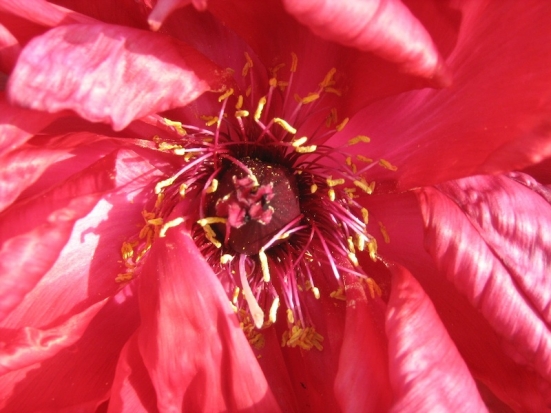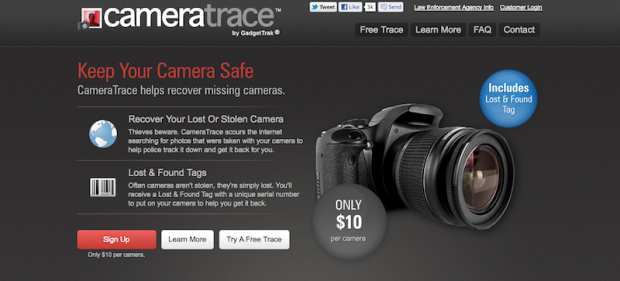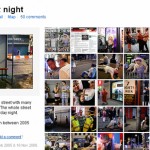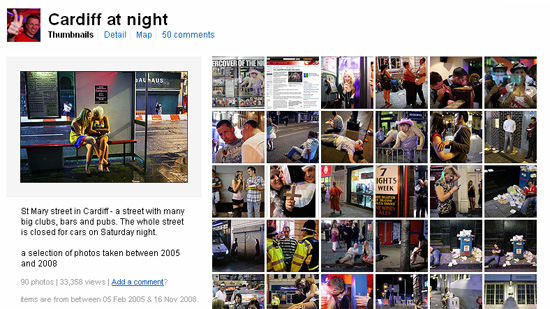
Taken with a point-and-shoot
A few days ago I found myself in the midst of an interesting Twitter conversation with a young photographer who has been debating upgrading to a dSLR from her point-and-shoot. However, she has read so many articles telling her not to bother that she wasn't sure if it were the right thing to do. Oh? People are actively saying don't buy an interchangeable lens camera? Really? This is what she told me:
I like photography and find my point-and-shoot limiting but everyone says to me better pictures is you and never the camera.
Oops! Something has definitely got lost in translation there, because I am undoubtedly one of the body of 'everyone' who extols photographic skill over camera prowess every time, but that's not at the expense of achievement. What I don't mean is that a young photographer should feel frustrated because she can't do what she wants to do with her camera and is scared of buying something new. You see, the key phrase in my correspondent's correspondence was 'find my point-and-shoot limiting'.
When we talk about photographic skill trumping your kit's capabilities, what we mean, on a most basic level, is that having the most expensive, all-singing, all-dancing camera with bells, whistles, and a hotline to the President of the United States won't automatically make you a better photographer. You have to know how to use it. A couple of winters ago, my cousin wanted to upgrade from her Panasonic Lumix point-and-shoot to a Canon 5D Mk II. She asked me what I thought. I told her to save her money and buy something a bit lower down the pecking order; invest in some good lenses and some books instead. Bless my cousin, money burns a hole in her pocket and she couldn't quite understand this. Her response: 'But it'll take better pictures!' Not quite, of course, as she will be the driving force behind her camera, and the one responsible for taking better pictures.
Ultimately, a bad photographer with an expensive camera will still produce bad photographs.
A good photographer with a camera that doesn't allow them the control they desperately want will still take good photos, but they might feel a bit frustrated in the process. Give these frustrated photographers cameras where they can call the shots, and a whole new world opens up to them. It isn't so much about having a 'better' camera, it's about having a camera that allows you to do more.
In my early days with an SLR, I came into a bundle of money and decided that it was time to buy a new lens to augment the few I already had. Not really knowing what to buy, I asked someone with a lot more experience than me what he thought would be a good choice. His advice: 'Leave the money in the bank. When you can't do what you want to do with what you already have, then you'll know what to spend it on.' He was absolutely right. It's not about having kit for the sake of having kit; it's about having kit and knowing what to do with it.
So to any photographer who's frustrated by a point-and-shoot: do seriously consider investing in something that gives you more control and more flexibility. What you don't need to do is spend all of your spare pennies, and probably quite a few that aren't spare, on a camera that's in excess of your needs. Buy the one that fits the bill and spend the rest on a good prime lens. When you can't get in close enough to photograph wildlife, or realise that you love taking photos of teeny-tiny things, or that your kits lens is giving you landscapes that are a bit too mushy, then it's time to think about a long lens, or a macro lens, or a wide-angle lens. (And remember that it is always worth investing in good glass. Cameras might come and go, but lenses will last you for years.) Eventually you might find that you need a camera with better low-light capability or more extensive continuous shooting functions–it might even fall apart or meet a sticky end–it's about knowing what meets your needs and then working to push yourself past that point.
Good photography is always about a good photographer, one who knows what to do with their kit.








